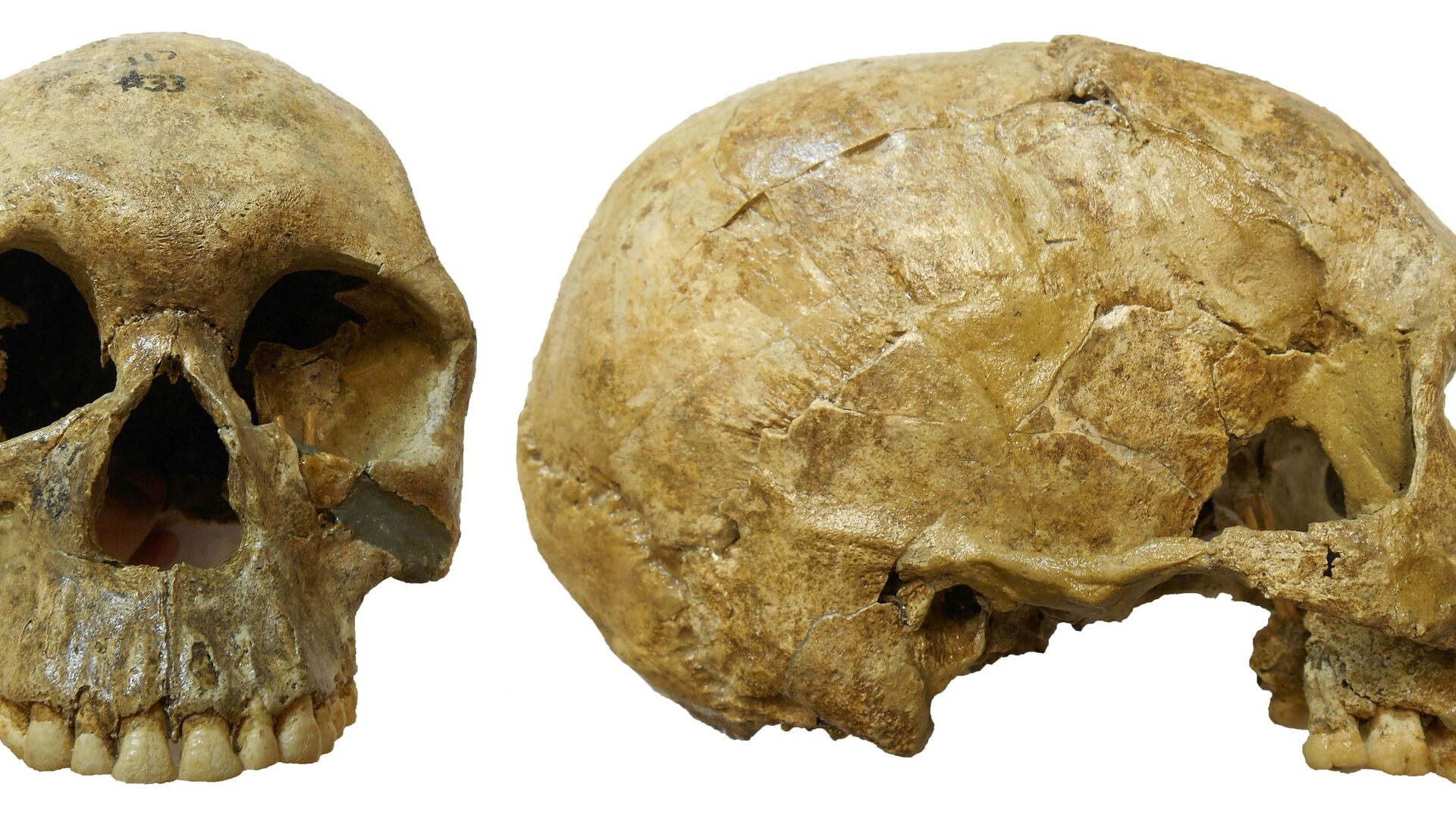https://sputnikglobe.com/20211015/dental-discoveries-study-of-ancient-teeth-debunks-belief-first-americans-came-from-japan-1089957310.html
Dental Discoveries: Study of Ancient Teeth Debunks Belief First Americans Came From Japan
Dental Discoveries: Study of Ancient Teeth Debunks Belief First Americans Came From Japan
Sputnik International
A study published in PaleoAmerica dismisses the archeologically-based theory that the first people to populate the Americas were of Jōmon ancestry. The Jōmon... 15.10.2021, Sputnik International
2021-10-15T19:57+0000
2021-10-15T19:57+0000
2021-10-15T19:55+0000
anthropology
study
teeth
https://cdn1.img.sputnikglobe.com/img/07e5/05/1c/1083014108_390:0:3611:1812_1920x0_80_0_0_6de23772307d04a1fe085721074551da.jpg
The study utilized biological anthropology by comparing DNA and tooth samples from early Americans and the Jōmon people. The results indicate that the first people of the Americas are not direct descendants of the Jōmon, a theory that had gained credibility in recent years due to the archeological similarities of the two groups.Teeth have been found to be a fantastic way to chronicle human population migrations. They are shown to have a strong hereditary genetic link. By studying the shape and roots of an individual’s teeth, researchers can pinpoint how closely related two people are.The research team found that the samples of Jōmon teeth and the samples of early American teeth only shared a 7% similarity. What the biological anthropology indicates is that a still-unidentified group of people are the likely ancestors of the first Americans.The Jōmon people were hypothesized to be the ancestors of the first Americans because of a similarity between their stone tools. However, unrelated groups of people have developed the same technologies independently, and cultural and technological exchange without genetic exchange has been known to occur.The authors of the study did acknowledge that the teeth samples they had of the Jōmon dated to around 9,000 years ago, while the Americas were first being populated at least 15,000 years ago. However, the researchers don’t believe any large-scale genetic changes occurred over that period.The team of researchers do not believe this challenges the notion that a Northeast maritime population and culture, similar to the Jōmon, are the likely ancestors of the first Americans. It simply suggests that an unrecognized group of people who lived in Beringia, largely isolated from other populations, were the first people to take up permanently in the Americas.
Sputnik International
feedback@sputniknews.com
+74956456601
MIA „Rosiya Segodnya“
2021
News
en_EN
Sputnik International
feedback@sputniknews.com
+74956456601
MIA „Rosiya Segodnya“
Sputnik International
feedback@sputniknews.com
+74956456601
MIA „Rosiya Segodnya“
anthropology, study, teeth
anthropology, study, teeth
Dental Discoveries: Study of Ancient Teeth Debunks Belief First Americans Came From Japan
A study published in PaleoAmerica dismisses the archeologically-based theory that the first people to populate the Americas were of Jōmon ancestry. The Jōmon were a maritime people who populated the Japanese archipelago, the Korean peninsula, and parts of far East Russia.
The study utilized biological anthropology by comparing DNA and tooth samples from early Americans and the Jōmon people. The results indicate that the first people of the Americas are not direct descendants of the Jōmon, a theory that had gained credibility in recent years due to the archeological similarities of the two groups.
Teeth have been found to be a fantastic way to chronicle human population migrations. They are shown to have a strong hereditary genetic link. By studying the shape and roots of an individual’s teeth, researchers can pinpoint how closely related two people are.
The research team found that the samples of Jōmon teeth and the samples of early American teeth only shared a 7% similarity. What the biological anthropology indicates is that a still-unidentified group of people are the likely ancestors of the first Americans.
The Jōmon people were hypothesized to be the ancestors of the first Americans because of a similarity between their stone tools. However, unrelated groups of people have developed the same technologies independently, and cultural and technological exchange without genetic exchange has been known to occur.
The authors of the study did acknowledge that the teeth samples they had of the Jōmon dated to around 9,000 years ago, while the Americas were first being populated at least 15,000 years ago. However, the researchers don’t believe any large-scale genetic changes occurred over that period.
The team of researchers do not believe this challenges the notion that a Northeast maritime population and culture, similar to the Jōmon, are the likely ancestors of the first Americans. It simply suggests that an unrecognized group of people who lived in Beringia, largely isolated from other populations, were the first people to take up permanently in the Americas.



